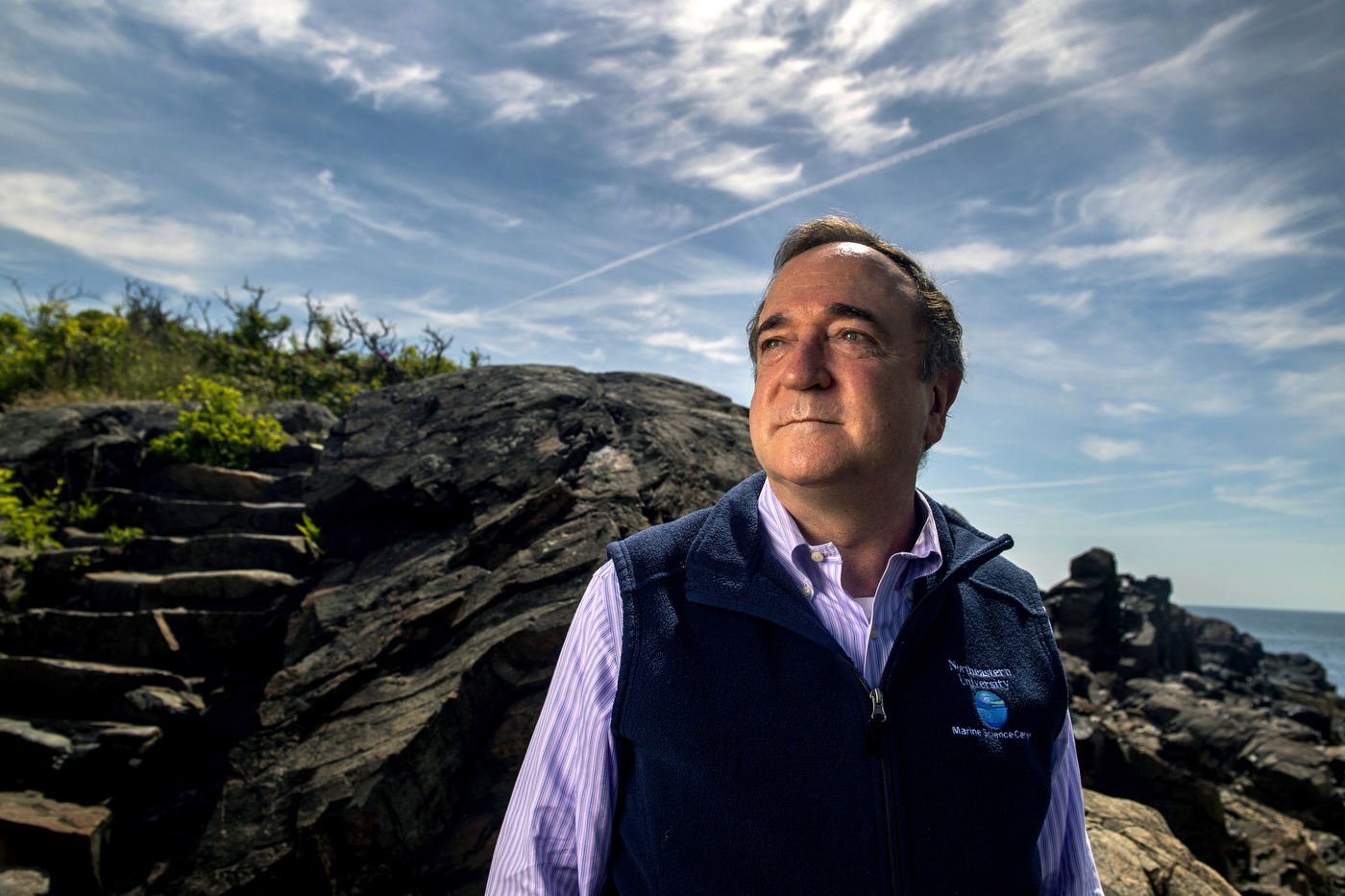Apart from the objectionable odor of the penguin rookeries and elephant seal haul outs, there is little to be smelled in the outdoors of Antarctica. “And the only colors you see are black, white, and blue,” says H. William Detrich, world-renowned professor of marine and environmental sciences, who retired from Northeastern in December. “There is no green. Unless it’s a building that’s painted green.”
For the past four decades, Detrich traveled to the far end of the Earth—depriving himself of the normal array of senses—on an every-other-year rhythm. It has been a life of adventure and achievement.
In 2016, a spot of land was named Detrich Island in honor of his discoveries. (It stands within a mile of Palmer Station, the U.S. research base in Antarctica that has been Detrich’s preferred home away from home.) Many of his findings have centered on the evolution of the ice-loving notothenioid fishes that have survived the Southern Ocean’s frigid temperatures by producing an antifreeze protein. One subgroup, the icefishes, even discarded red blood cells and hemoglobin altogether, which are essential to all other known vertebrates.
An irony of Detrich’s obsession with icefishes is that he too is exceptional. He has made his own way, transcending the narrowly focused perspective that can be typical in science. When asked what makes him most proud as he looks back on his career, his answer is surprising to anyone who doesn’t know him well. Detrich dwells most of all on his creation of a co-op program that has sent eight Northeastern students to Antarctica for six months at a time.
Detrich’s innovation has enabled Northeastern to offer co-op job opportunities on every continent. Many students have approached the professor—in some cases before they’ve been accepted by the university—to inquire about the co-op.
The formation of the co-op program and his relationships with fellow researchers provide a new vein of insight into Detrich’s career.
“He was on work-study when he came into the lab,” Detrich says of the unlikely path taken by his first Antarctic co-op student. “He started out washing dishes. But he asked a lot of questions. Being in the lab with students was such a great opportunity for him. He was really soaking it all up.”
The year was 2009. The student was Corey Allard.
Read more on News@Northeastern.

